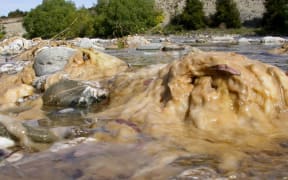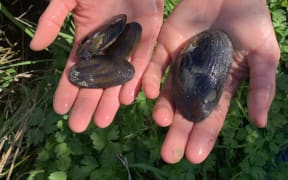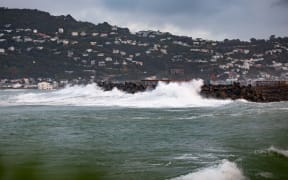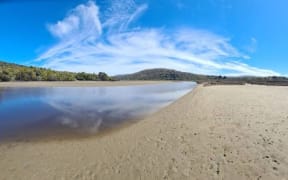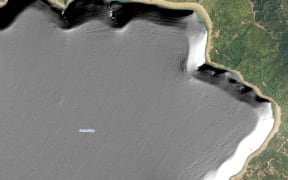By Bailey Brannon

Toitoi fish have been collected from Kohangapiripiri in the Parangārahu Lakes for the Zealandia ecosanctuary. Photo: Supplied / Zealandia
A native fish species in decline has begun migration to a Wellington ecosanctuary to help restore the freshwater ecosystem.
On Friday, Zealandia began releasing 160 toitoi into their ecosystem - believed to be the first time the species has ever been transported in modern times.
The population of toitoi fish, otherwise known as the common bully, has been in steady decline and becoming completely lost in certain regions.
This comes as part of a new freshwater focus for Zealandia Te Māra a Tāne, to complement their 500-year long vision to create an ecosystem which will sustain unique animals and plant life.
Zealandia general manager Jo Ledington said the combination of poor water quality and habitat loss put freshwater biodiversity in trouble.
"By bringing back toitoi, we're working towards whole ecosystem restoration. Each species within an ecosystem plays an important role and makes it a richer, healthier, and more resilient place," she said.
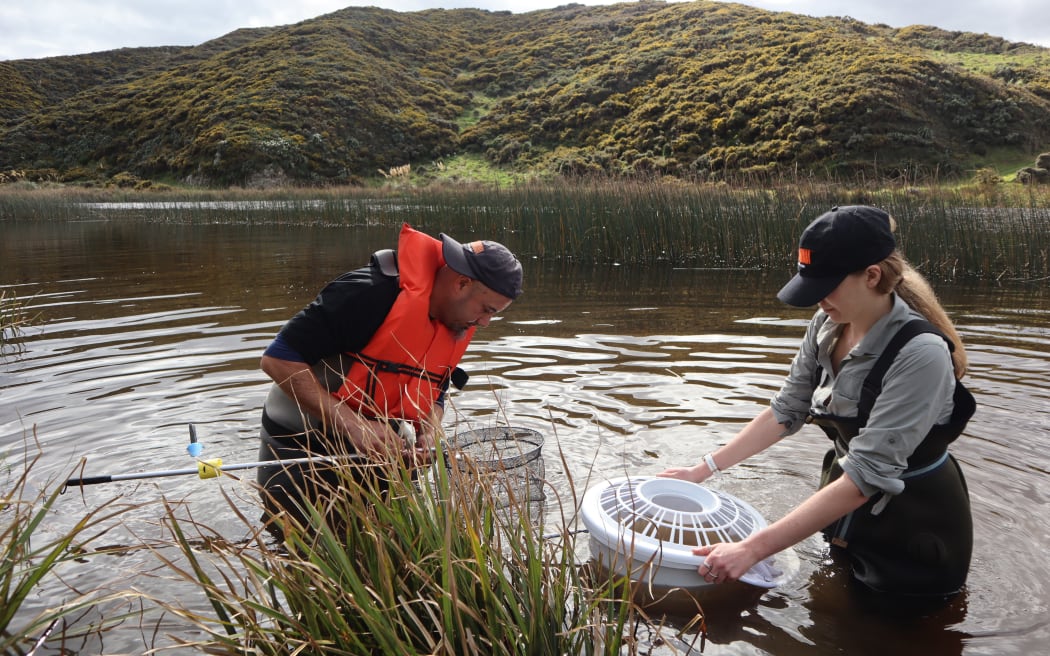
Toitoi fish have been collected from Kohangapiripiri in the Parangārahu Lakes for the Zealandia ecosanctuary. Photo: Supplied / Zealandia
Kākahi, freshwater mussels, rely on the toitoi as a form of transport, putting their kids on them to shift them to other parts of their home.
The unique relationship between the toitoi and kākahi allows larvae to develop into juvenile mussels.
The migration process of the toitoi began last month in cooperation with a co-management group for the Parangārahu Lakes, allowing them to journey through the lakes to Roto Māhanga.
These toitoi remained in quarantine for the past three weeks as they underwent health checks and adjusted to their new environment before being released into the waters.

Toitoi being moved to Zealandia were in quarantine for three weeks as they underwent health checks and adjusted to their new environment. Photo: Supplied / Zealandia
Zealandia bicultural engagement lead ranger Terese McLeod said Māori knowledge informed the way they collected, monitored, and released the fish.
"It's been special to begin resurfacing some of the mātauranga around this species," McLeod said.
"This translocation has also been an opportunity to initiate a relationship with a species that we typically haven't had much awareness of at Te Māra a Tāne."
Zealandia's urban ecosanctuary is an isolated 225-hectare conservation which has previously reintroduced 18 species of native wildlife into the area.
The goal is to emulate a pre-human New Zealand ecosystem, before the introduction of predators that destroyed numerous species.
